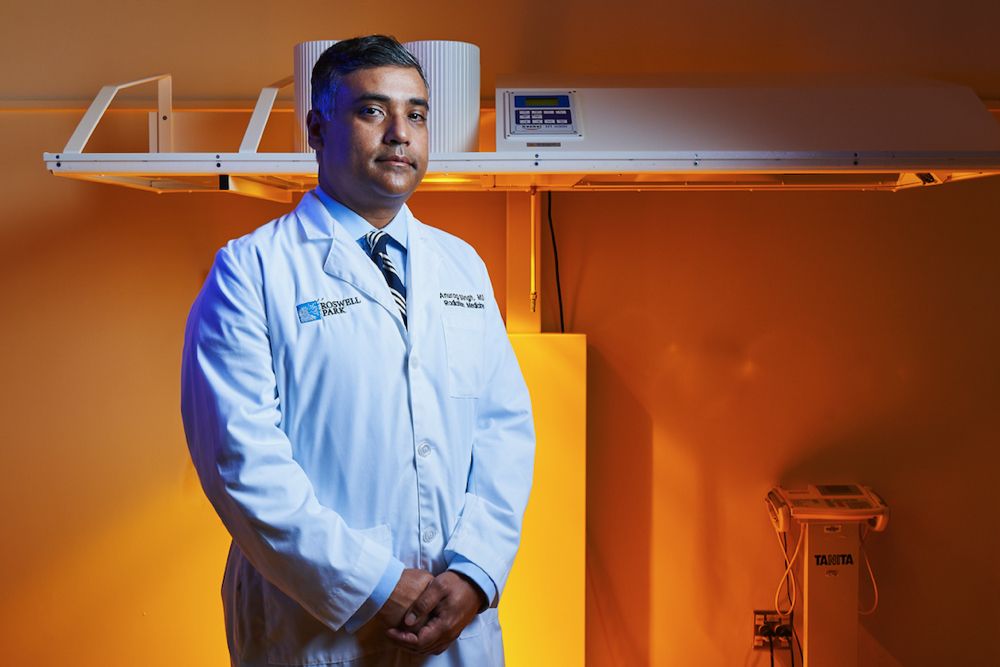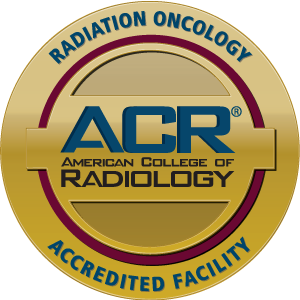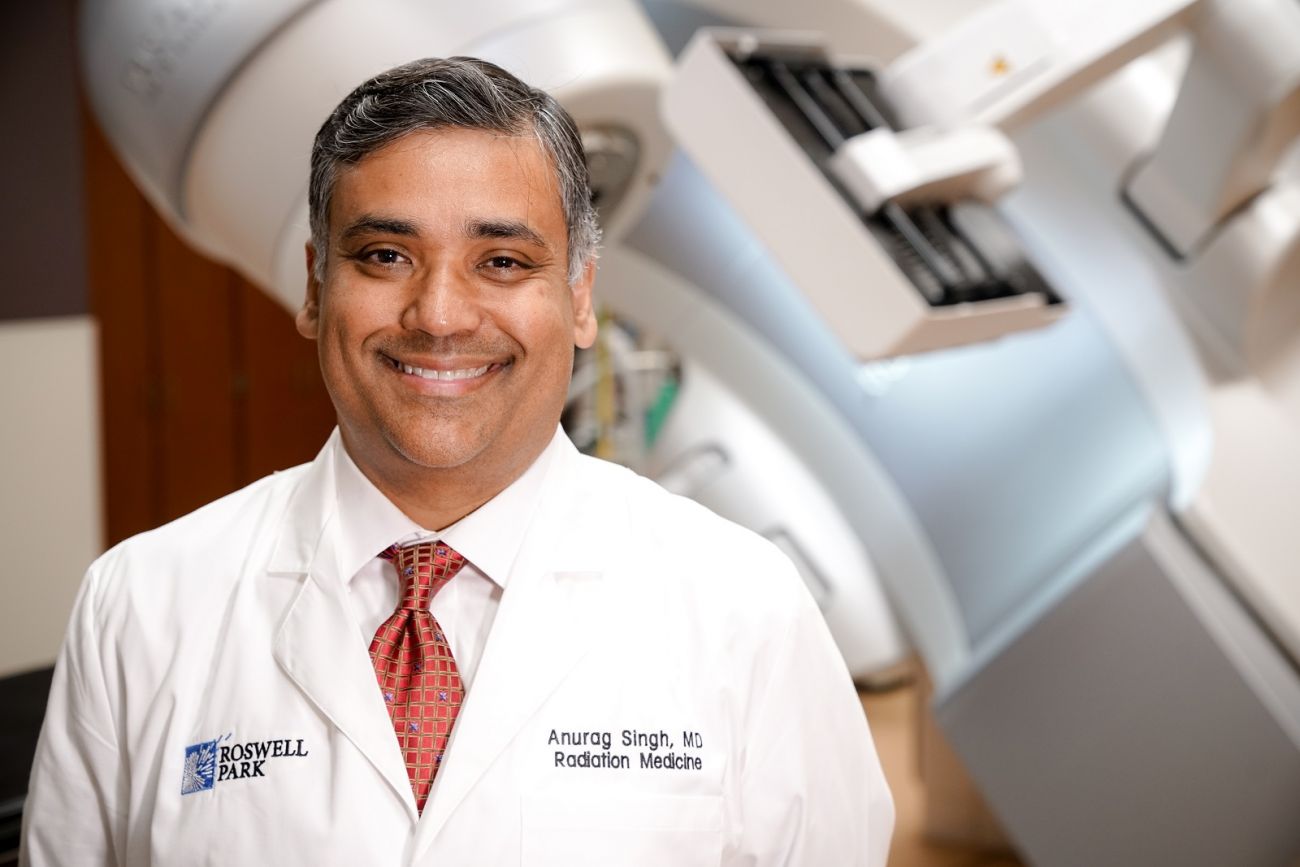Radiation therapy, also called radiotherapy, may be part of your treatment plan if you have squamous cell carcinoma — the most common type of head and neck cancer. This type of treatment uses high-energy radiation waves or particles to destroy cancer cells by damaging their DNA.
External Beam Radiation Therapy
The most common type of radiation treatment is external beam radiation therapy which uses a large machine called a linear accelerator to generate and direct the radiation to the precise tumor location in the body. The dose of radiation you’ll receive is divided into fractions so that you’ll receive these fractions over several days or weeks. For head & neck cancers, Roswell Park offers several variation of targeted radiation therapy which is highly precise, making it possible to zero in on the tumor while protecting healthy tissue from radiation exposure. These include:
- Intensity-Modulated Radiation Therapy (IMRT)
- Image-Guided Radiation Therapy (IGRT)
- Volumetric-Modulated Arc Therapy (VMAT)
Our Radiation Medicine Department provides the highest level of safety for our patients. Treatment is delivered by board-certified radiation oncologists. The Radiation Medicine team also includes several PhD-trained, board-certified medical physicists who continually monitor safety and quality-control standards.
Managing side effects
Cancer treatment can cause xerostomia, or dry mouth, which can be painful and make it difficult to eat or speak. Roswell Park’s Department of Radiation Medicine offers Acupuncture-Like Transcutaneous Electrical Nerve Stimulation (ALTENS), a non-invasive treatment for xerostomia that doesn’t produce the side effects associated with drug therapy.
Special assistance for alcohol-dependent patients
Some patients with alcohol dependency develop a condition called delirium tremens, or DTs, when they drink heavily and then quit. DTs can uncontrolled shaking, seizures, heart palpitations and other symptoms that interfere with treatment. Through Roswell Park’s Radiation Medicine Department, eligible patients who have DTs can receive medication to control symptoms during treatment.


